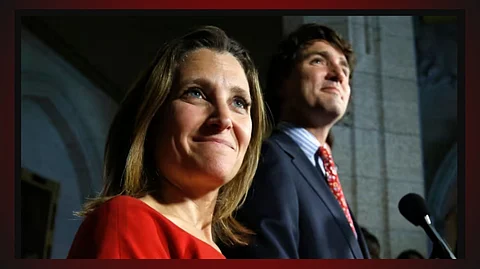Tax on real estate speculators never collected, despite law passed three years ago
A federal tax targeting real estate speculators was never enforced, despite being passed by Parliament in 2022, according to internal government records.
Blacklock's Reporter says the underused housing tax, aimed at curbing speculation by non-resident foreign owners, has quietly gone uncollected since its implementation — leaving billions unaccounted for.
A briefing note from the Comptroller General dated December 18 revealed that the Canada Revenue Agency (CRA) granted sweeping waivers under the tax, which was supposed to impose a 1% annual levy on the assessed value of vacant or underused residential properties owned by non-residents.
“In 2024 waivers increased by $2.5 billion for a total of $2.8 billion,” said the note in Public Accounts. It attributed the increase almost entirely to the underused housing tax.
The CRA cited the need to give property owners more time to comply but offered no further explanation.
“To provide more time for affected owners to take necessary steps to comply, the Canada Revenue Agency provided transitional relief,” the note said, without clarifying why the tax was suspended or when it might be enforced.
Then-Finance Minister Chrystia Freeland had championed the initiative, calling it “an important measure” to deter housing speculation.
“Housing shouldn’t be taken over by speculators,” she told the Senate national finance committee during hearings in 2022.
Despite that, no penalties were applied and no effort was made to collect outstanding amounts.
An Inquiry Of Ministry filed in the House of Commons in 2024 showed the tax generated $49 million in revenue in 2022 but cost $59 million to administer.
The CRA assigned 351 federal employees to handle the paperwork. The figures were released in response to questions from Conservative MP Adam Chambers (Simcoe North, Ont.), who criticized the effectiveness of the tax.
Of the 578,910 tax returns submitted, 478,220 — more than 82% — reported no tax owing. The CRA did not clarify how many of the remaining returns resulted in actual payments or why enforcement was abandoned.
Chambers said the tax appeared more symbolic than functional.
“The government has an idea of the underused housing tax,” he said. “If someone does not use their house for their own personal reasons they would fill out a form and prove it is an allowable use for which they do not have to pay this special tax.”
He also noted the six-page return form was too complex for most taxpayers, including seasoned professionals.
“If they try to figure out whether they qualify for an exemption it is confusing to even the most sophisticated accountants. They would have to do the form every single year,” he said.
Cabinet has not commented on why it allowed the tax to lapse without enforcement.


